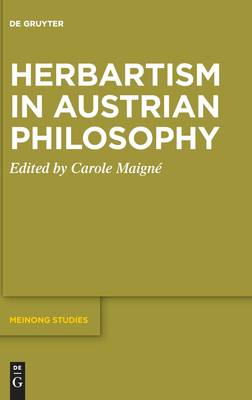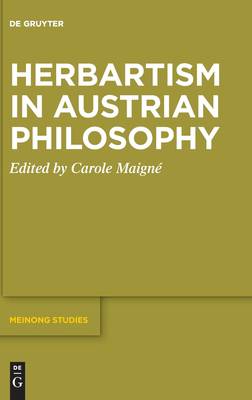
- Afhalen na 1 uur in een winkel met voorraad
- Gratis thuislevering in België
- Ruim aanbod met 7 miljoen producten
- Afhalen na 1 uur in een winkel met voorraad
- Gratis thuislevering in België
- Ruim aanbod met 7 miljoen producten
Herbartism in Austrian Philosophy
Omschrijving
"Herbartism in Austrian-Hungarian philosophy" is often an obligatory reference, but even if quoting Herbart and his school is frequent, reading them attentively is less evident. Because Herbartism reached its peak in the second half of the 19th century, and was effectively institutionalized as "official philosophy" of the Austro-Hungarian Empire, at least in Prague and Vienna, criticizing Herbartism often means discussing the "Austrian", "philosophical" and "institutional" criteria of the object under consideration. As the history of the Austrian tradition and theoretical reflections in this field expand, discussion of this tradition is becoming more and more tight and precise. The contributors in this volume recall the historical and conceptual importance of Herbartism in the field of Austrian philosophy, by addressing several aspects of his specific realism: philosophical, theoretical, pedagogical, psychological, and aesthetical.
Specificaties
Betrokkenen
- Uitgeverij:
Inhoud
- Aantal bladzijden:
- 161
- Taal:
- Duits
- Reeks:
- Reeksnummer:
- nr. 11
Eigenschappen
- Productcode (EAN):
- 9783110747294
- Verschijningsdatum:
- 23/08/2021
- Uitvoering:
- Hardcover
- Formaat:
- Genaaid
- Afmetingen:
- 156 mm x 234 mm
- Gewicht:
- 430 g

Alleen bij Standaard Boekhandel
Beoordelingen
We publiceren alleen reviews die voldoen aan de voorwaarden voor reviews. Bekijk onze voorwaarden voor reviews.











